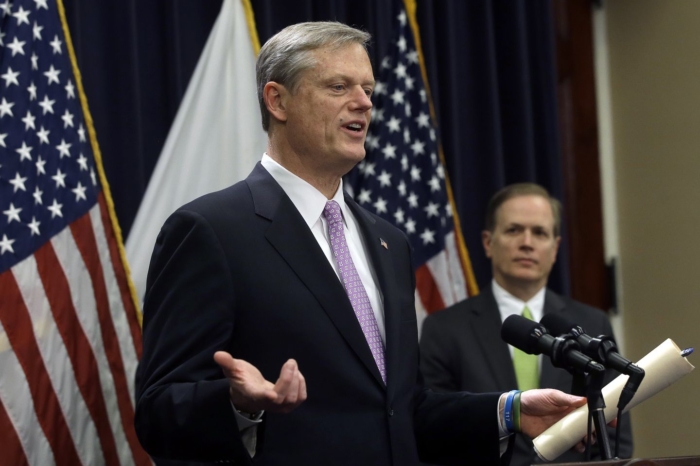Tell state & school leaders to ensure our kids get a quality education this fall!
/0 Comments/in News /by Editorial Staff Share on Facebook
Share on Twitter
Share on
LinkedIn
+
As the coronaviruscontinues in Massachusetts this fall, the education of our children should be atop priority for our state & school district leaders. Many schools didn’tcontinue rigorous instruction during the shutdown.
They didn’t provide dailyschedules, take attendance or ensure daily interaction between teachers andstudents – as a result, our kids lost a third of their academic year.
MA state &district leaders are making school re-opening plans now, that could includeat-home schooling and hybrid options in the fall.
Sign the petition below and tell them that our kids need to continue to learn even if they’re not in a school building.
View our additional education resources:

USAF Academy’s Jeanne Heidler on Henry Clay & Congressional Statesmanship
Dr. Heidler discusses Henry Clay's legacy as a seminal figure in American history. She covers Clay's early life, his transformation from a Virginia farm boy to a leading statesman, and his being mentored in the law by Founding Father, George Wythe.
 https://pioneerinstitute.org/wp-content/uploads/TLC-Shiloni-05292024-767x432-1.png
432
767
Editorial Staff
https://pioneerinstitute.org/wp-content/uploads/logo_440x96.png
Editorial Staff2024-05-29 16:14:072024-05-29 16:27:34Israeli Harvard Student Maya Shiloni on Campus Antisemitism
https://pioneerinstitute.org/wp-content/uploads/TLC-Shiloni-05292024-767x432-1.png
432
767
Editorial Staff
https://pioneerinstitute.org/wp-content/uploads/logo_440x96.png
Editorial Staff2024-05-29 16:14:072024-05-29 16:27:34Israeli Harvard Student Maya Shiloni on Campus Antisemitism
Kimberly Steadman of Edward Brooke on Boston’s Charter School Sector
Steadman reflects on her educational background and leadership in urban charter public schools. She discusses the importance of rigorous academic expectations for K-12 students, and how this outlook influences her educational philosophy co-directing the Brooke charter school network. Ms. Steadman shares the challenges faced by Massachusetts charters due to the post-2016 ballot loss, and how she and other charter public school leaders advance supportive policy reforms.

Cheryl Brown Henderson on the 70th Anniversary of Brown v. Board of Education
Cheryl Brown Henderson, daughter of the lead plaintiff in the landmark U.S. Supreme Court decision, Brown v. Board of Education, explores her family's pivotal role in the Brown case, detailing her father’s part within the NAACP's wider legal strategy.

POLITICO’s Peter Canellos on Justice John Marshall Harlan & Plessy v. Ferguson
Mr. Canellos delves into Harlan's upbringing in a prominent slaveholding family, his Civil War service in the Union Army, and his rapid rise in Kentucky politics as a Republican. He highlights John Harlan’s mixed-race half-brother Robert Harlan and key legal precedents like the notorious Dred Scott v. Sandford (1857), which influenced Harlan's views on race and equality.

Colonel Peter Hayden on U.S. Cyber Command & National Security
General Counsel of U.S. Cyber Command, Colonel Pete Hayden, shares insights about growing up in western Massachusetts, attending law school, his military service, and emphasizes the legal aspects of his national security work. Col. Hayden discusses Cyber Command's mission, distinguishing it from the NSA, while stressing the importance of defending the nation in cyberspace.

Hoover at Stanford’s Stephen Kotkin on Stalin’s Tyranny, WWII, & the Cold War
Dr. Stephen Kotkin explores Stalin's origins, consolidation of power, and his Communist despotism. Kotkin delves into Stalin's cunning political maneuvers, his complex relationships with other Soviet leaders like Lenin and Trotsky, and the devastating consequences of his regime, including the forced collectivization and mass starvation of millions.

Johns Hopkins’ Ashley Berner on Educational Pluralism & Democracy
Johns Hopkins’ Institute for Education Policy director, Dr. Ashley Berner discusses educational pluralism's role in improving K-12 performance, exploring European models and the impact of U.S. school choice programs. Dr. Berner analyzes universal ESAs and vocational-technical schooling, addressing persistent academic struggles and civic knowledge gaps.

39th U.S. Poet Laureate Robert Pinsky for National Poetry Month
Boston University professor, Robert Pinsky discusses his memoir Jersey Breaks: Becoming an American Poet; the enduring influence of sacred texts like the Psalms; and the wide cultural significance of classic poets like Homer and Shakespeare.

U.S. Chamber Foundation’s Hilary Crow on K-12 Civics Education
U.S. Chamber Foundation VP, Hilary Crow discusses the state of K-12 civics, emphasizing the Chamber Foundation’s role in addressing America’s wide civic education deficits. Crow highlights a recent national civics survey, alarming civic literacy gaps, and links between political unrest and our nation’s educational shortcomings in K-12 civics.

UCLA’s Ronald Mellor on Tacitus, Roman Emperors, & Despotism
Dr. Mellor delves into the enduring influence of Tacitus, the great Roman historian, on both America’s Founding Fathers and contemporary understanding of politics and government. He discusses Tacitus's insights on the early Roman emperors, unchecked authority, moral judgment of leadership, and the decline of the Roman Republic, as well as ancient lessons for modern governance.

Tufts Prof. Elizabeth Setren on METCO’s Proven Results
Prof. Setren discusses her recent study of METCO, a pioneering voluntary school desegregation program under which Massachusetts students in Boston and Springfield are bused to surrounding suburban districts. She discusses METCO's history, the academic performance of students in the program, enrollment challenges, long-term benefits, and disparities among students.



